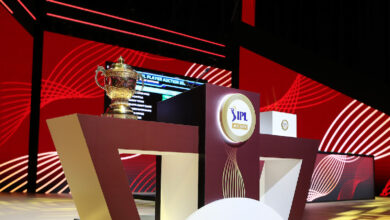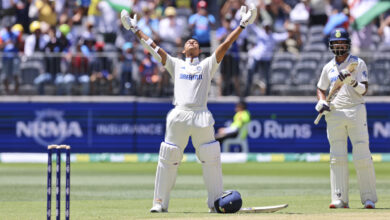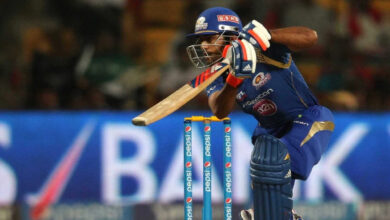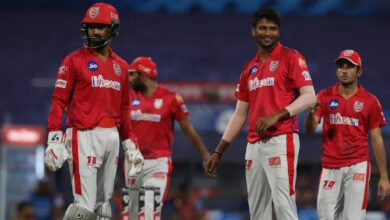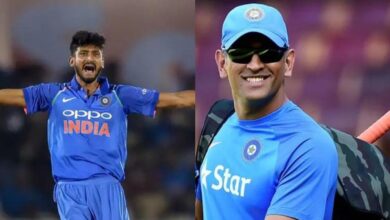World Cup 2022 final: Didier Deschamps and France on cusp of achieving the impossible in modern football

Mystery illness, Lionel Messi and Karim Benzema, those were the protagons of Didier Deschamps’s pre-final press conference on Saturday. He would, without showing any signs of anger at the repetitiveness of the questions, at worst grimace or look blankly into the corner of the room, and keep on elaborating and explaining.
And then the question exploded: “How do you see your chances of defending the title?” It didn’t stop there. “Only two teams and one manager have done that. Do you think you can be the third?” He managed a half-smile, and answered what was a typical Deschamps answer. You could mute his audio and still understand the crux of his reply. “I’m not the most important thing here, the team is. Of course, I’m proud and we all know there’s a chance now to defend our title in the final,” Deschamps said.
The team ahead of the individual, delineating hory from the present, and downplaying the enormity of the achievement that’s winking at him. “What’s the big deal?” he didn’t ask. But his face said it all. “I don’t really think about myself. I’m pleased with the fact that we’ve had this success. We’ll do everything we can to ensure we’re happier on Sunday evening.”
You won’t get a juicier or pithier quote or opinion from him. It’s not because he is not aware of the hory floating at the balcony of his team and himself. But he is not someone who makes eloquent statements, no matter how much you nudge him.Subscriber Only StoriesPremiumPremiumPremiumPremium
But to put the enormity of his feat—nay, the French team’s— you need to go back in time. Before Deschamps, just three managers have guided their teams to successive finals—a select group comprising some of the most revered names in the sport; the Italian Vittorio Pozzo, Argentine Carlos Bilardo and West German Franz Beckenbauer. Of the three, only Pozzo has managed the ultimate feat, but with ample caveats.
In 1934, 16 teams comprised the tournament, which spanned 16 days and 17 games. In 1938, the tournament was downsized to 15 teams, though there was an extra game than the previous edition. Suffice it to say that the concept of a World Cup had not fully blossomed and developed into the grand scale as it is now.
Bilardo and Beckebauer are, undoubtedly, visionaries of the game. Pozzo is somewhat of a forgotten figure, but he drew the initial sketches of the Italian blueprint. A genuine tactical innovator, he formulated the metodo all’italiana; rigid defending, a flexible, resourceful midfield and a quick forward line. The triumph, though, was marred political undertones, of Roman salutes and black shirts.
The only other team that has defended the crown was Brazil, in 1958 and 1962, a span in which they had three managers. But it’s not the rarity of the feat that makes the occasion all the more special—should France defend the title—but the impossibility of achieving it in this day and age.
It’s instructive to study about the post World Cup winning fate of teams. After 2006, Italy didn’t make it beyond the group stages in 2010 and 2014; phew, they did not even quality for the next two editions; after 2010, all Spain could muster was round-of-16 appearances in Russia and Qatar; after 2014, Germany were knocked out in group stages in 2018 and 2022.
It is not a champions’ jinx but a reflection of how football has evolved and changed. It’s no longer about the team with the best talents prevailing; it’s no longer about philosophies and dogmas; or about picking a nucleus from one club. It is more about, to quote Deschamps, “to create an environment where players are comfortable, an environment of brotherhood, one where you don’t fear failures but work hard.” Or simply put, one that has a manager of Deschamps’ qualities. No loud statements, no whiff of arrogance, no public crucification of players, but a manager who knows how to channel the best out of his players.
After picking the squad in October, Deschamps had outlined the characterics he looks for in players when picking a side. “I must say playing football is not the only consideration. Of course, they are brilliant players but there are other criteria – their character, their disposition to live together with other people and get on with their team-mates. It is 24 hours a day for several long weeks. The environment that they live and work in is key,” he had explained. The players are so connected that those that are not in the squad, like Paul Pogba and N’golo Kante, frequently video-call them and fire them up. When their colleagues were sick, Ousmane Dembele would make them ginger tea, Antoine Griezmann would monitor their temperatures.
Club struggles and injuries
It’s wondrous how he has forged a potentially World Cup winning team—put it World Cup finals rather—from a group of players who were struggling at their clubs. Kylian Mbappe was igniting only sporadically at PSG; Griezmann barely played 30 minutes a game due to a ridiculous clause in his loan deal; Olivier Giroud has played just 60 minutes on average this season at AC Milan; centre-back Ibrahima Konate had just 280 minutes of game-time all season; his partner Raphael Varane has been injured for a month in the lead-up to the World Cup. Add to the l the marquee players that were injured—Karim Benzema, Pogba, Chropher Nkunku, Kante and Presnel Kimpembe. Then on the first day, he lost left-back Lucas Hernandez, then Adrien Rabiot missed the semifinal due to illness. This French team, or that of 2018, would not be the greatest team in the hory of the game, or one of the greatest. Not a patch on the golden batch of 1998 or 2000, or the Brazil of Pele and Garrincha, Mario Zagallo and Vava, that defended the title. But they have demonstrated that you needn’t be the greatest team in the world to achieve a great feat.
Effectively, Deschamps has reached the final with a largely third-choice group. And if he defends the crown, he would be doing so with a largely different group from 2018. Just five players that started in the 2018 final featured against Morocco. It could be fewer if the illness ravages the squad.
But it doesn’t matter for Deschamps. He is not the one to wallow over what he does not have but focused on how to extract the best out of what he has. As the cliche goes, control the controllable. He might be a man of cliches, but he is on the cusp of something incredibly novel. Another slice of personal glory beckons him—he would be just the second person in the world to have multiple World Cup medals at home (two as a manager and one as player) after Pele “No, no. mon ami,” he would say. Not me, but the team. Typical Deschamps.



